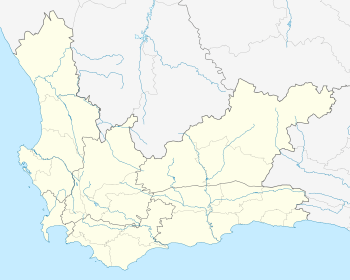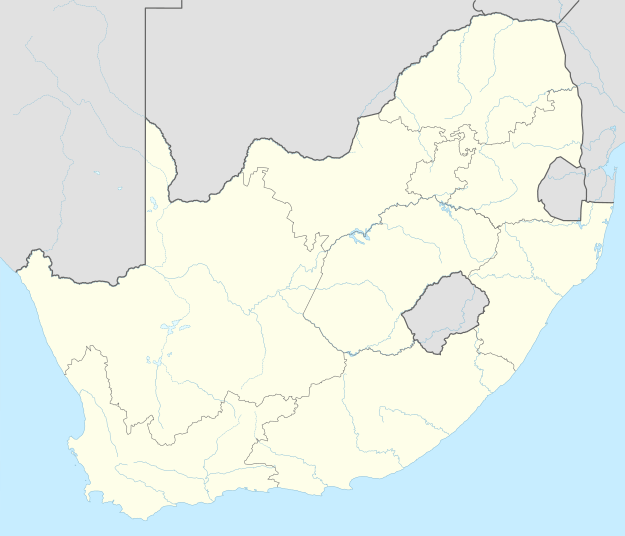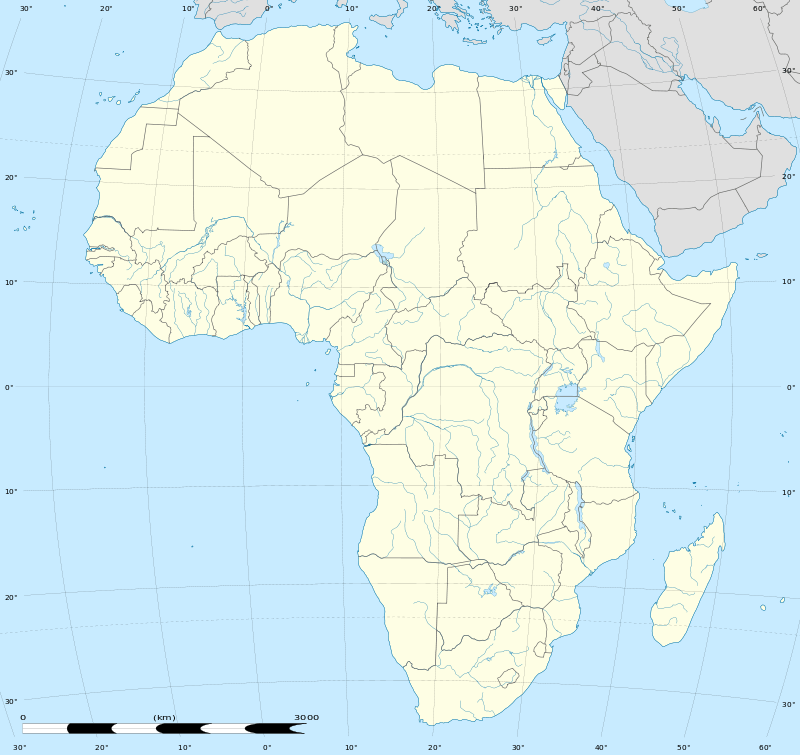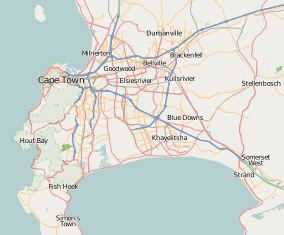Walmer Estate
| Walmer Estate | |
|---|---|
 Walmer Estate  Walmer Estate  Walmer Estate
| |
|
Location within Cape Town  Walmer Estate | |
| Coordinates: 33°56′10″S 18°26′42″E / 33.936°S 18.445°ECoordinates: 33°56′10″S 18°26′42″E / 33.936°S 18.445°E | |
| Country | South Africa |
| Province | Western Cape |
| Municipality | City of Cape Town |
| Main Place | Cape Town |
| Area[1] | |
| • Total | 0.47 km2 (0.18 sq mi) |
| Population (2011)[1] | |
| • Total | 2,325 |
| • Density | 4,900/km2 (13,000/sq mi) |
| Racial makeup (2011)[1] | |
| • Black African | 17.9% |
| • Coloured | 55.6% |
| • Indian/Asian | 10.1% |
| • White | 8.8% |
| • Other | 7.6% |
| First languages (2011)[1] | |
| • English | 47.1% |
| • Afrikaans | 48.9% |
| • Other | 4.0% |
Walmer Estate is a subsection of the former District Six area of Cape Town in the Western Cape province of South Africa.
During apartheid, some of Walmer Estate's residents were upper-class Coloureds. It was variously described as "the coloured Bishopscourt",[2] or "black Sea Point" (both being well-to-do white suburbs). The people of Walmer Estate were mostly said to be English-speaking, a language which then carried a superior status compared to Afrikaans.[3]
Despite this, Afrikaans used to be the dominant language of the area, and poverty was until very recently along with gangsterism a slight problem. It is only recently, through problems like gentrification, that the areas demographics have dramatically changed. This has resulted in many long term residents being evicted out of the homes they and their families have lived for generations, to the gang-infested townships on the Cape Flats.[4] Many ex-residents, that found themselves in this situation, now reside in Blikkiesdorp and other parts of the new Delft Township on the Cape Flats.[5] The gentrification has almost completely transformed the suburb over the past few years. Its architecture has also changed, and most of the suburb has lost its old-Cape Town, District Six charm. As many residents have disappeared, so has many of the areas cultural practices disappeared. At new years time, the area is now almost devoid of Kaapse Klopse teams that would entertain the residents. This is due to lack of support and dislike from new residents, a problem that is also faced by nearby Bo-Kaap.[6]
References
- 1 2 3 4 "Sub Place Walmer Estate". Census 2011.
- ↑ Vivian Bickford-Smith; E. Van Heyningen; Nigel Worden (1999). Cape Town in the Twentieth Century: An Illustrated Social History. New Africa Books. p. 130. ISBN 978-0-86486-384-3.
- ↑ Kay McCormick (2002). Language in Cape Town's District Six. Oxford University Press. p. 43. ISBN 978-0-19-823554-5.
- ↑ "Walmer Estate family to be evicted after 80 years in one house", Cape Town Anti-War Coalition blogspot, 29 July 2007, retrieved 3 October 2015
- ↑ "Eviction fight over unsafe building", www.iol.co.za/capeargus, 3 February 2012, retrieved 3 October 2015
- ↑ "Kaapse Klopse banned in Bo-Kaap", www.iol.co.za/news, 30 December 2009, retrieved 3 October 2015
.svg.png)